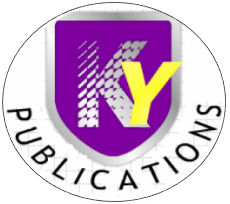REVIEW PROCESS
Peer Review
At KY Publications, we follow Double Blind Peer Review process. The
Double Blind Peer Review process aims to eliminate all sorts of
stereotypical, conscious or unconscious bias that may be attached to the
manuscript, while reviewing it. In a study conducted by Jo Handlesman
from Yale University ( Proc. Natl Acad. Sci. USA 109, 16474–16479; 2012
) he cites a distinct possibility in view of evidence that subtle gender
biases affect assessments of competence, appropriate salaries and other
aspects of academic life and claims that female authors are often
subjected to tougher review standards.
One of our main motivation towards adopting double blind peer review is
that, when we surveyed our authors, there were voices raised claiming
the possibility of bias in the review process. More than one third of
authors felt that their work were not accepted to publish because of
gender bias and racial bias. Though, we couldn’t verify their claims, we
decided to adopt Double Blind Peer Review Process, which will eliminate
such claims.
We implement the Double Blind Review Process seriously. Reviewers,
receive author’s article with no mention of their identity including
their work and ethnicity. The authors as well are not informed about the
reviewers’ identity. Post, the implementation of Double Blind Peer
Review, we asked authors to guess the reviewers’ identity and vice
versa. We were surprised to know that, both the authors and reviewers
were not able to guess it rightly. Also, it was found that, our authors
and reviewers are convinced that, Double Blind Peer Review process will
eliminate the claims of bias and so we are.
Perhaps the most popular argument against a double-blind process is that
referees will guess the authors’ identities, regardless of whether or
not the names are actually sent along with the paper, because the
content will give them away. We realise that this may be the case
occasionally, and we will rely on participating authors to phrase their
paper carefully so as to avoid easy identification. Nevertheless, we are
convinced that for many papers the double-blind process will serve to
remove unconscious biases.
We strongly recommend that reviewers who receive a paper to not to guess
who the authors might be or what affiliations they might have.
Authorship should not, in any case, affect their report.


